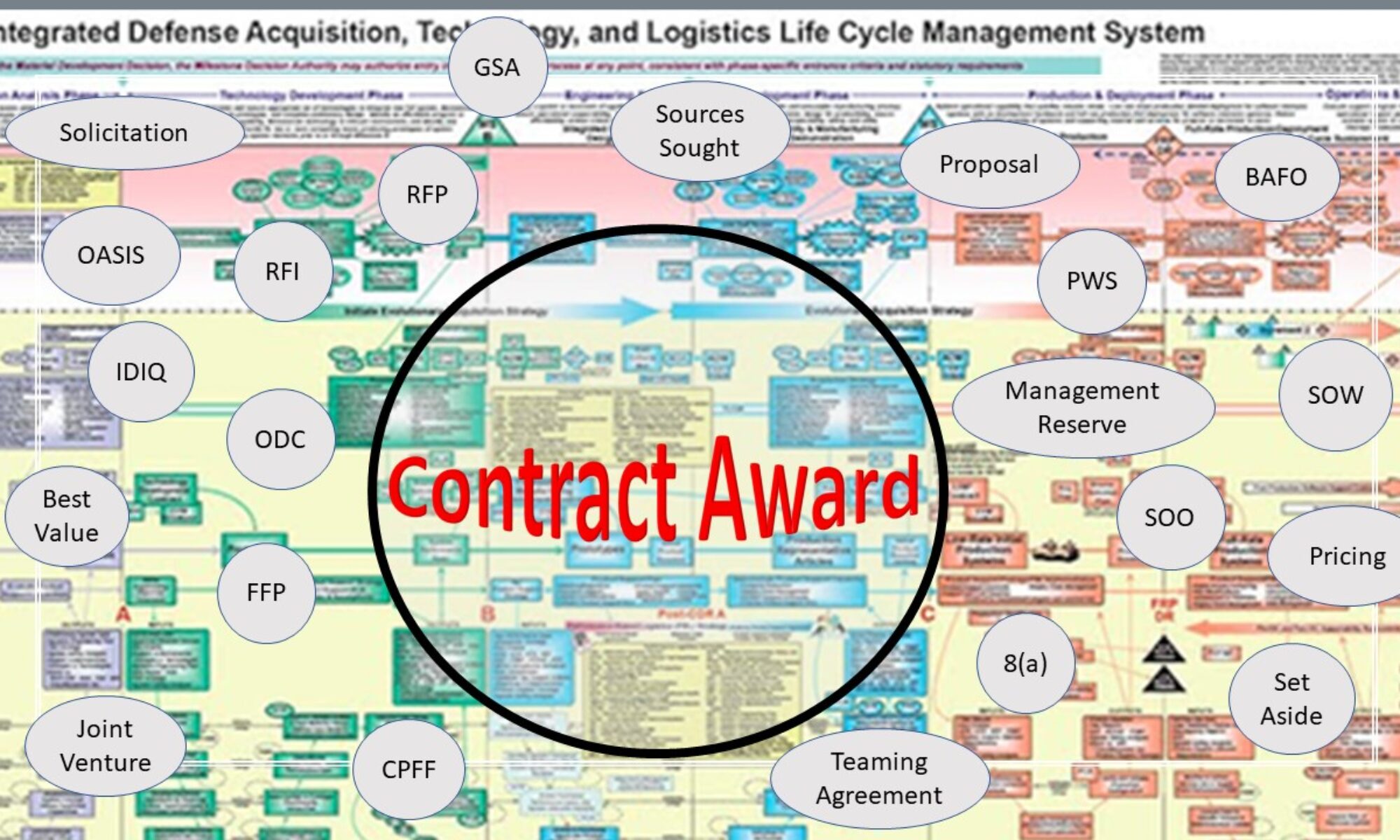I hear a lot of talk about wanting to start a company to be a Broker. Resell stuff to the government. A&AS could be an alternative to the Broker idea, but it’s just as competitive.
A&AS is what I generally refer to as “butts in seats”. It’s providing qualified labor to fill government positions as a contractor. These contracts are generally awarded as 5 year (1 year with 4 options) contracts. The way they work is the government will provide a list of positions they need filled. It may be anything from a pest control person to an aircraft engineer. You provide the bodies. The people will be employees of your company, but will generally work at a government location and report directly to the government. What you are is a staffing agency for the government. You generally provide the bodies for a minimum of 5 years.
If you think about it, it’s easy money if you can win one. They frequently require you use the fair labor rates established for the location so competition comes down to markup. Who is willing to accept the lowest markup rates. The same thing happens when you’re looking to be a reseller for the government. You and all your competitors are getting quotes from your suppliers. The quotes are generally fairly close to each other. So it comes down to who will accept the lowest markup with those as well.
One downside to competing for A&AS contracts. They are frequently set aside for ANC 8(a) companies. However, you can find some that are not. You occasionally find some difficult requirements related to security. I recently spent 2 months writing a proposal for a $70mil A&AS opportunity only to have the government make a change requiring we have a secret security clearance before the proposal was submitted, which disqualified me. So you have to be careful when reviewing the requirements.
I just wanted to point this type of contract out as an alternative to those looking at becoming a broker company.

